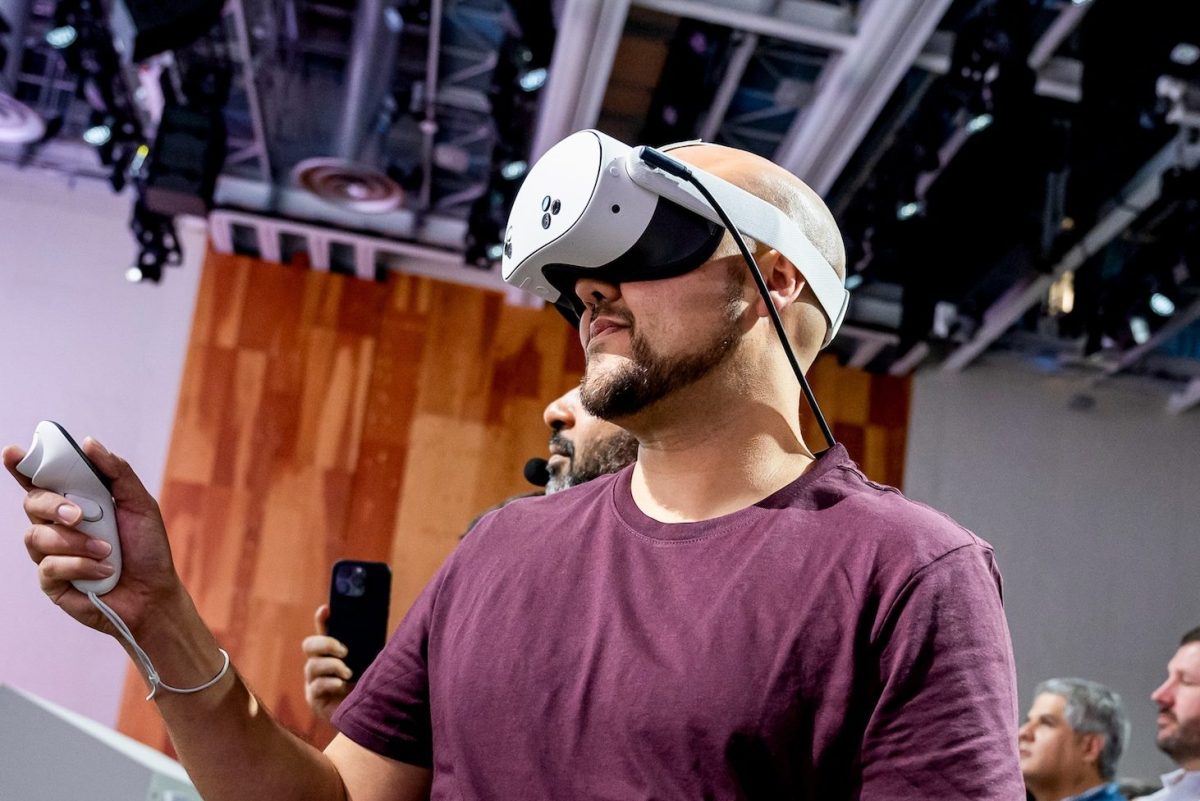As part of an ongoing effort to embed virtual reality (VR) in education, Meta has launched a new partnership with a slew of universities in the U.S. and U.K., designed to provide feedback on a new product that Meta hopes will finally make VR just a little more mainstream.
The new Meta for Education beta program will see Facebook’s parent company partner with 13 educational institutions, which will get access to an early version of a product that Meta has been teasing for a while already. In a blog post on Monday, Meta said it wants to “make it easier for educators to discover interactive and engaging content,” spanning subjects such as science, medicine, history, and language arts.
Ahead of the program’s formal launch, universities will be tasked with testing VR and mixed reality (XR) prototypes in class, ahead of a more formal launch in the future. The universities include: Arizona State University, Houston Community College, Imperial College London, Miami Dade College, Morehouse College, New Mexico State University, San Diego State University, Savannah College of Art & Design, The University of Glasgow, University of Iowa, University of Leeds, University of Miami, and University of Michigan.
Meta also said it’s bringing its “digital twin” metaversity program to Europe, starting with the University of Leeds in the U.K.; University of the Basque Country in Spain; and the University of Hannover in Germany. This follows more than two years after Meta partnered with a company called VictoryXR to power virtual university programs in the U.S. — in environments that directly replicate their real-world campus counterparts.
Meta says “immersive classes” have begun already at the University of Leeds, with an initial focus on performance and theater. The University of Basque Country, meanwhile, will follow suit in February 2025 with classes on physiotherapy and anatomy, while the University of Hannover will offer immersive classes starting in the next academic year.

Virtual education
Today’s announcement comes some seven months after Meta teased a new education-focused product built around its Quest headsets, including a hub for education apps and tools, and controls to enable administrators to manage multiple headsets centrally. At the time, Meta said it planned to make the product available to “institutions serving learners aged 13+,” however today’s news suggests that — for now, at least — it’s focusing on older learners.
However, it also shows that Meta is far from giving up on its costly VR endeavors — Meta’s Reality Labs outfit, focused on all-things VR and AR, continues to haemorrhage money. Its most recent earnings showed that while revenue was up 29% year-on-year to $270 million, its expenses were also up, leading to an overall Q3 loss of $4.4 billion, a figure the company expects to keep growing due to “ongoing product development” and “investments to further scale our ecosystem.”
But with Apple throwing its hat into the immersive headset ring with the Vision Pro, some believe this could be the catalyst to catapult mixed reality — including VR and AR — into the mainstream arena.

